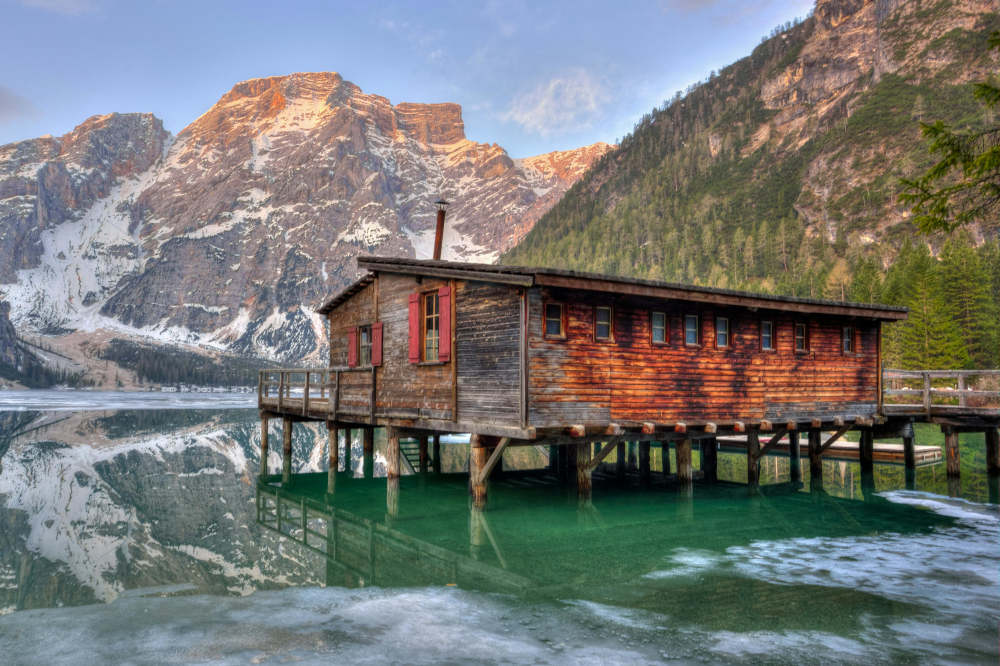
Living off-grid has become an appealing lifestyle choice for those seeking independence, sustainability, and a closer connection to nature. As the desire to break free from the conventional 9-to-5 grind grows, many are exploring ways to sustain themselves financially while embracing a simpler, more self-sufficient way of life.
Whether you're drawn to the idea of reducing your carbon footprint, cutting ties with modern utilities, or simply enjoying the peace and tranquility of a remote location, the challenge remains: how do you make a living while living off-grid?
Fortunately, with the rise of digital technology and the growing demand for sustainable products and services, there are numerous opportunities to generate income without sacrificing your off-grid ideals.
From remote work and online businesses to sustainable farming and eco-tourism, there are many practical and profitable ways to achieve financial independence if you want to live off-grid and thrive both financially and environmentally.
By diversifying your income streams and leveraging both modern technology and traditional practices, you can create a sustainable and financially independent off-grid lifestyle with many advantages.
Each of these methods allows you to capitalize on your skills and resources while staying true to the principles of self-sufficiency and environmental stewardship. Let's dive in.
Panaprium is independent and reader supported. If you buy something through our link, we may earn a commission. If you can, please support us on a monthly basis. It takes less than a minute to set up, and you will be making a big impact every single month. Thank you!
1. Remote Work and Freelancing
With the rise of remote work, many jobs can be done from anywhere with a reliable internet connection. Freelancing in fields like writing, graphic design, programming, virtual assistance, and digital marketing can provide a steady income while living off-grid.
First, consider your interests if you want to find a suitable remote job. Then, identify your skills (e.g., writing, graphic design, coding). And start networking on LinkedIn and industry-specific sites.
Explore remote job boards and apply to multiple job openings after updating your resume and cover letter that highlight your remote work experience and skills:
Don't forget to create a professional online presence. Update your LinkedIn profile and create an online portfolio. Join online communities and forums for networking.
Once you get the job, make sure to invest in reliable internet (satellite, mobile hotspots) and essential tools (laptop, headset, webcam). Also, create a dedicated workspace. Use ergonomic furniture and good lighting. And establish a daily routine and work-life boundaries.
2. Online Business and E-commerce
Starting an online business allows you to sell products or services globally while living off the grid. This could include dropshipping, selling handmade crafts, or offering digital products like e-books and courses.
These platforms make it easy to reach customers and make money online while off-grid:
Online businesses are ideal for generating income. But first, you need to research profitable ideas and analyze your target market and competitors. The key to success online is to identify customer needs and market gaps.
Determine if you'll sell physical products, digital products, or services. Then, source products from suppliers or create your own. Once you do, it'll be much easier to set up your online presence with a relevant marketing strategy.
Utilize social media like TikTok, Instagram, and Youtube, email marketing like Mailchimp, and search engines like Google to reach your audience. And consider paid advertising and influencer partnerships.
Don't forget to plan your shipping logistics if selling physical products and integrate secure payment gateways depending on your platform of choice:
3. Sustainable Farming and Organic Produce
Sustainable farming is a great way to earn an income while living off-grid. It can provide both food and income while preserving the environment.
Growing and selling organic produce and herbs can be a profitable way to earn a living. You can sell your products at local farmers' markets, through community-supported agriculture (CSA) programs, or directly to local restaurants and stores. Visit:
First, plan your farm and choose the type of farming (vegetables, fruits, herbs, mixed farming) and make sure your land is suitable by evaluating soil quality, water availability, and climate conditions. Read:
If you are not familiar with them already, learn sustainable farming practices. They include organic farming, permaculture, and crop rotation. You need to understand the principles of soil health, composting, and water conservation. You can take a course:
And check out my recommendation of the 10 best books on how to be more self-sufficient.
Then you can start clearing the land of debris and weeds, installing irrigation systems (e.g., drip irrigation, rainwater harvesting), and building structures like greenhouses, barns, and storage sheds.
Regarding your crops, start with a manageable plot size and expand gradually. Use organic seeds and practice companion planting. Don't forget to monitor crop health and soil conditions regularly.
4. Eco-tourism and Homesteading Experiences
Homesteading offers a fulfilling and sustainable lifestyle that promotes self-reliance and environmental stewardship. Begin with manageable projects and gradually increase your homesteading activities while living off-grid.
Hosting eco-tourism experiences such as farm stays, guided nature tours, workshops, and retreats can help you generate revenue by attracting visitors looking for sustainable travel options near your off-grid property.
Provide accommodations for guests, such as camping sites, cabins, or eco-friendly lodges, and ensure accommodations are comfortable, safe, and environmentally friendly. These websites can help you reach a broader audience:
Along the way, make sure to create memorable and sustainable eco-tourism experiences that leave a positive impact on both guests and the environment.
You can also organize workshops and activities that educate visitors about sustainable living practices (e.g., organic gardening, renewable energy, nature conservation).
Determine what aspects of your off-grid lifestyle you want to share with visitors (e.g., sustainable farming, nature trails, wildlife observation). And consider your property's unique features and attractions.
Focus on mastering one aspect at a time before adding more responsibilities. Identify your strengths and weaknesses, determine the resources you have available, and draw out a plan that maximizes efficiency and productivity.
5. Renewable Energy Solutions
If you have expertise in renewable energy, you can offer consulting, installation, and maintenance services for solar, wind, or hydroelectric systems.
You can also sell excess energy generated from your own systems back to the grid in some areas using net-metering schemes. They offer a practical way to generate renewable energy, offset electricity costs, promote renewable energy adoption, and contribute to a more sustainable energy future.
First, research local regulations and policies regarding net-metering. Understand eligibility requirements, metering arrangements, and tariff structures. Start here:
Then, evaluate your energy consumption patterns and identify potential renewable energy sources (e.g., solar panels, wind turbines). Determine the size and capacity of the renewable energy system needed to meet your electricity needs. Read:
Make sure to follow local regulations and safety standards before installing renewable energy systems on your property. Always work with certified installers to ensure proper installation and performance.
6. Crafting and Artisan Goods
Selling handmade goods can provide a fulfilling and sustainable income while living off-grid. It is a rewarding way to earn a living as creating and selling handmade goods like soaps, candles, textiles, pottery, and woodworking items can be a profitable venture.
First, determine what handmade goods you want to create. Assess your skills and interests to find a craft that you are passionate about and proficient in.
Then, find sustainable and high-quality materials for your products. Consider local sources to support your community and reduce environmental impact.
Make sure to include eco-friendly and sustainable packaging made from biodegradable materials.
Create a professional website showcasing your products, story, and brand. Set up an online store using platforms like Etsy, Shopify, or your own website.
Take high-quality photos of your products and use social media platforms like Instagram, Facebook, and Pinterest to promote your products and engage with potential customers.
Read our guide on how to sell products on Instagram.
Share behind-the-scenes content, tutorials, and stories to build a connection with your audience. Consider starting a blog or YouTube channel to showcase your craft and drive traffic to your store.
You can also sell these items at local markets, or through consignment shops. Local craft fairs, farmers' markets, and community events are ideal to network with other artisans and customers to build relationships and gain exposure.
7. Online Content Creation
Start a blog, YouTube channel, or social media presence focused on off-grid living. Sharing your experiences, tips, and tutorials can attract a large following. You can generate income through affiliate marketing, selling merchandise, offering online courses or services, advertising, and sponsorships.
Keep in mind that becoming an influencer requires dedication, consistency, and a genuine connection with your audience to build your influence, grow your following, and monetize your platform effectively.
You draw inspiration from these successful sustainable fashion influencers.
You need to develop a personal brand that reflects your style, personality, and values. And define your brand's voice and aesthetic to ensure consistency across all platforms.
Then, choose the social media platforms where your target audience is most active (e.g., Instagram, YouTube, TikTok, Twitter, Facebook). Focus on 1-2 primary platforms to start, then expand as you grow.
You can follow the lead of these top TikTok eco-friendly creators.
Make sure to mix various content types: photos, videos, stories, live streams, and blog posts. Create engaging, high-quality content that provides value to your audience.
Respond to comments and messages promptly to build a connection with your followers. Ask questions, run polls, and encourage user-generated content to increase engagement. Show appreciation for your audience by acknowledging their support and feedback.
8. Teaching and Consulting
Offering courses, workshops, and consulting services on topics related to off-grid living, sustainable farming, and self-sufficiency can be a valuable income stream.
Selling a course involves creating valuable content, marketing it effectively, and engaging with your audience. It is an excellent way to share your expertise and generate income.
As you choose a topic you are knowledgeable about and passionate about, ensure there is demand for your course by researching your target audience’s needs and interests.
Invest in good-quality equipment for recording videos and audio. Edit your video course to remove errors and add engaging elements like graphics and animations, slides, quizzes, assignments, and downloadable resources.
You can teach in-person or create online courses through these platforms:
9. Forestry and Natural Resources
Managing and selling timber, firewood, and other natural resources from your off-grid property can provide income. Sustainable forestry practices ensure that you can continue to benefit from your resources over the long term.
Selling timber can be a profitable venture, especially if you have access to forested land or woodlots. But it requires careful planning, sustainable practices, and effective marketing.
First, evaluate the type, quality, and quantity of natural resources available on your land. Identify the species of trees you have, as different types of timber have different market values.
Look at the Timber Species Manual for reference.
Then, research the local and regional markets to understand demand and pricing. Create a sustainable forestry management plan to ensure long-term productivity and environmental health.
Also, check local regulations and obtain any required permits or licenses. Ensure compliance with environmental and safety standards to avoid legal issues.
10. Remote Real Estate Management
If you have skills in property management, you can manage rental properties or vacation homes remotely. This can include tasks like booking management, maintenance coordination, and guest communication, all of which can be done online.
Managing rental properties can be a lucrative investment if done effectively. However, effective rental property management involves careful planning, legal compliance, proactive maintenance, and strong tenant relationships.
First, familiarize yourself with local, state, and federal landlord-tenant laws. Then, ensure the property is in good condition, safe, and attractive to tenants.
Then, create attractive listings with high-quality photos and detailed descriptions. Use these online platforms and social media to reach potential tenants:
FAQ: Get Paid To Live Off The Grid
1. Can I really make a sustainable income while living off-grid?
Yes, many people successfully earn a living off-grid through a combination of remote work, small businesses, and sustainable practices like farming and eco-tourism. It requires planning, creativity, and a willingness to adapt, but it is entirely possible.
2. What are the most common ways to make money off-grid?
Common methods include remote work (freelancing, online businesses), sustainable agriculture (selling produce, livestock), eco-tourism (hosting guests, tours), crafting and selling handmade goods, and providing local services (repair, construction).
3. How do I find remote work opportunities suitable for off-grid living?
Look for remote job boards, freelance platforms, and companies known for hiring remote employees. Skills in writing, programming, graphic design, and virtual assistance are in high demand. Networking and leveraging social media can also help.
4. What type of online business can I run from an off-grid location?
You can run various online businesses such as e-commerce stores, digital marketing agencies, blogging, affiliate marketing, online courses, and digital products. Reliable internet access is essential for these ventures.
5. How can sustainable farming generate income?
Sustainable farming can generate income through selling organic produce, herbs, eggs, honey, or meat at local markets or through community-supported agriculture (CSA) programs. Value-added products like jams, pickles, or handmade soaps can also be profitable.
6. Is it possible to run a successful eco-tourism business off-grid?
Yes, many off-grid residents run successful eco-tourism businesses by offering unique experiences like farm stays, guided nature tours, workshops, and retreats. Marketing through social media and travel websites can attract eco-conscious travelers.
7. What are the initial costs involved in setting up an off-grid income source?
Initial costs can vary widely depending on the business. For remote work, you might need a good computer and reliable internet. For farming, initial investments in land, seeds, and equipment are necessary. Eco-tourism might require accommodations and amenities for guests.
8. How do I ensure a reliable internet connection off-grid?
Options for reliable internet include satellite internet, mobile hotspots, or community internet services. Research the best providers in your area and consider backup options to ensure connectivity.
9. What skills are most valuable for making money off-grid?
Valuable skills include self-reliance, adaptability, technical skills (for remote work), agricultural knowledge (for farming), hospitality skills (for eco-tourism), and basic business management. Learning to market your products or services effectively is also crucial.
10. How do I market my off-grid products or services?
Use social media, local markets, online marketplaces, and community networks to market your products or services. Building a strong online presence through a website, blog, or social media profiles can help reach a wider audience. Engage with your local community and leverage word-of-mouth referrals.
Key Takeaways
Living off-grid offers a unique blend of freedom, sustainability, and connection to nature, but it also requires innovative approaches to generate income.
The key to successfully making money off-grid lies in leveraging your skills, passions, and the natural resources around you. Whether it's harnessing renewable energy, growing organic produce, or tapping into the digital economy, the possibilities are vast and varied.
By combining modern technology with traditional practices, off-grid living can be both financially viable and deeply fulfilling. As more people seek alternatives to conventional living, the opportunities to make money off-grid will continue to grow.
Embracing this lifestyle requires creativity, resilience, and a willingness to adapt, but the rewards are well worth the effort. With the right approach, you can achieve a harmonious balance between financial independence and sustainable living, proving that it's possible to thrive off the grid.
There are myriad ways to achieve financial stability while embracing an off-grid lifestyle. From remote work and online businesses to sustainable farming and eco-tourism, these strategies not only provide a means to support yourself but also align with the principles of self-sufficiency and environmental stewardship.
Was this article helpful to you? Please tell us what you liked or didn't like in the comments below.
About the Author: Alex Assoune
What We're Up Against
Multinational corporations overproducing cheap products in the poorest countries.
Huge factories with sweatshop-like conditions underpaying workers.
Media conglomerates promoting unethical, unsustainable products.
Bad actors encouraging overconsumption through oblivious behavior.
- - - -
Thankfully, we've got our supporters, including you.
Panaprium is funded by readers like you who want to join us in our mission to make the world entirely sustainable.
If you can, please support us on a monthly basis. It takes less than a minute to set up, and you will be making a big impact every single month. Thank you.
































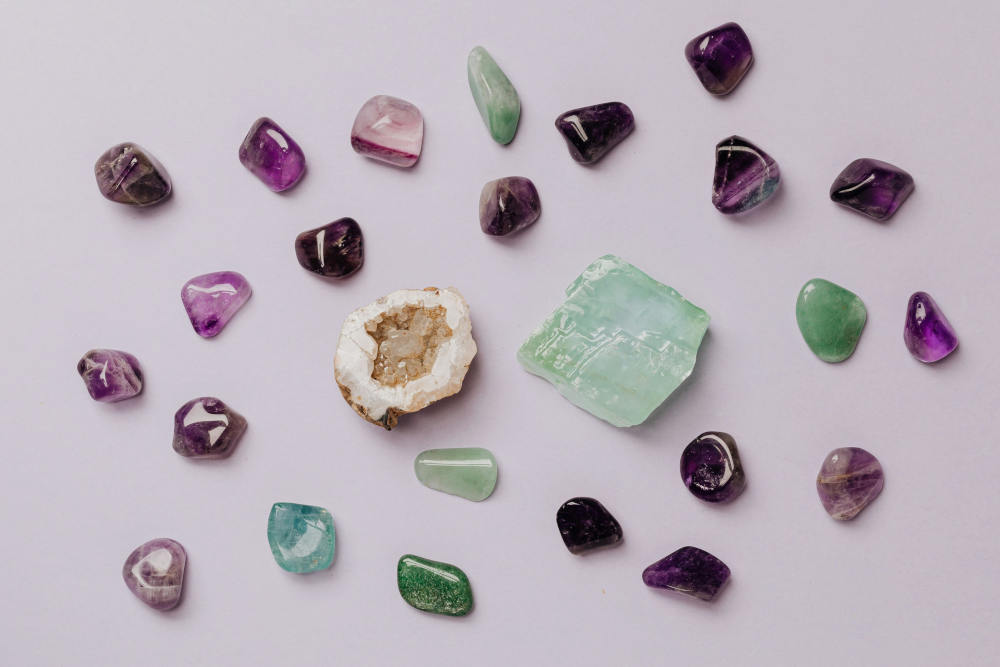

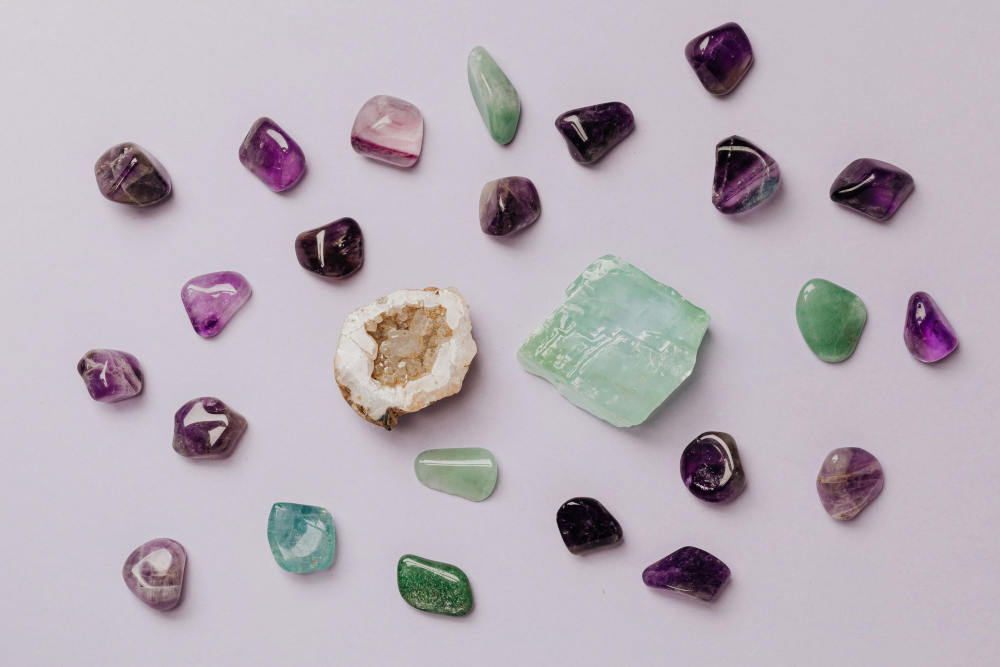
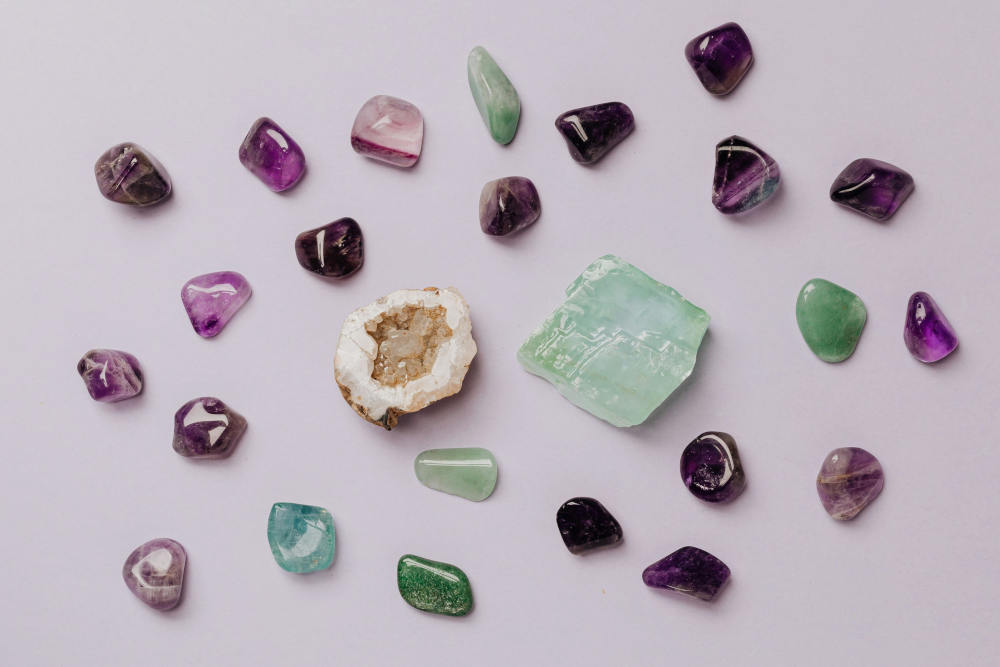
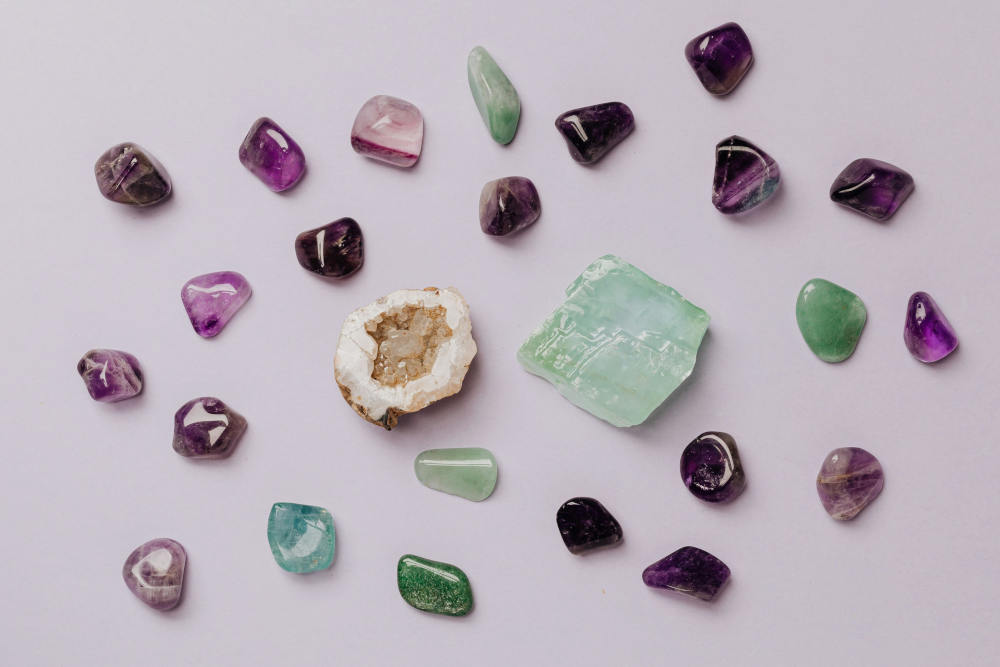
0 comments